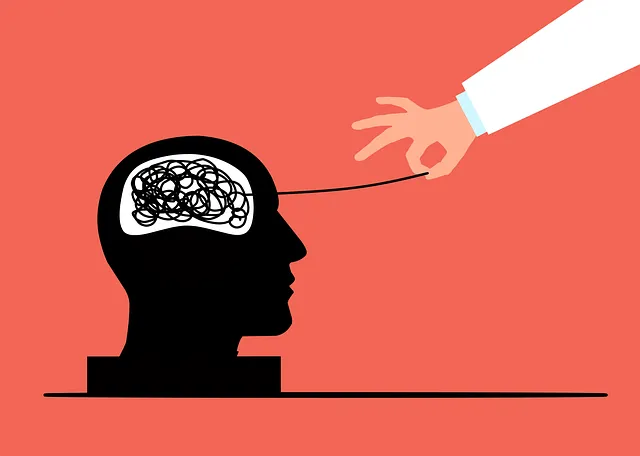Cultural competency in healthcare, advocated by organizations like Kaiser Permanente, is crucial for providing quality care that respects diverse cultural backgrounds and enhances mental health outcomes. By addressing cultural biases among providers and implementing tailored strategies, Kaiser Permanente's superior mental health coverage boosts patient satisfaction and enables effective treatment plans. Their comprehensive approach combines education, mentorship, and continuous improvement to navigate diverse patient populations and promote burnout prevention. Integrating mental health services into holistic care through practices like Mental Wellness Journaling empowers patients with self-reflection and resilience, ultimately improving quality of life. Effective training strategies focusing on empathy, communication, social skills, and inner strength development enhance cultural competency and care quality.
Healthcare provider cultural competency training is a vital component of delivering quality care in an increasingly diverse society. In this article, we explore the importance of cultural competence, focusing on its impact on patient outcomes, especially in mental health. We present a case study of Kaiser Permanente’s successful approach and discuss strategies for integrating comprehensive mental health services. By examining these aspects, we aim to enhance provider skills, improve patient experiences, and ensure superior mental health coverage.
- Understanding Cultural Competency in Healthcare: A Necessary Foundation
- The Impact of Cultural Biases on Patient Care and Mental Health Outcomes
- Kaiser Permanente's Approach to Enhancing Cultural Competence: A Case Study
- Integrating Mental Health Services: Ensuring Comprehensive Coverage
- Training Strategies for Healthcare Providers: Promoting Empathy and Effective Communication
Understanding Cultural Competency in Healthcare: A Necessary Foundation

Cultural competency in healthcare is a foundational concept that ensures providers deliver quality care that respects and understands diverse cultural backgrounds, beliefs, and values. This approach is essential, especially in an increasingly diverse society, where patients’ identities can significantly impact their health outcomes. By embracing cultural competency, healthcare organizations like Kaiser Permanente strive to provide superior mental health coverage, addressing the unique needs of various communities.
The inner strength development and self-esteem improvement that come from culturally competent care are invaluable. Mental health education programs designed with this principle in mind can foster a safe and supportive environment, encouraging patients to openly discuss their challenges. This understanding not only enhances patient satisfaction but also facilitates more effective treatment plans tailored to individual needs.
The Impact of Cultural Biases on Patient Care and Mental Health Outcomes

Cultural biases among healthcare providers can significantly impact patient care and mental health outcomes. These biases, often unconsciously held, influence the way providers interact with patients from diverse backgrounds, leading to potential misunderstandings or misjudgments. For instance, a provider’s preconceived notions about cultural practices or beliefs might hinder effective communication, resulting in inadequate treatment plans. This is particularly crucial in the context of mental health services, where sensitive topics and unique therapeutic approaches are involved.
In the case of organizations like Kaiser Permanente, which offers comprehensive mental health coverage, addressing cultural competency is vital. By implementing training programs that focus on burnout prevention strategies for healthcare providers, mood management techniques, and confidence-boosting initiatives, institutions can foster an inclusive environment. These measures not only enhance patient satisfaction but also encourage providers to tailor their care, ensuring better mental health outcomes, especially among diverse populations.
Kaiser Permanente's Approach to Enhancing Cultural Competence: A Case Study

Kaiser Permanente, a leading healthcare organization, has pioneered an innovative approach to enhancing cultural competence among its providers. Their comprehensive strategy focuses on navigating the complex tapestry of diverse patient populations and tailoring care accordingly. By recognizing the impact of cultural nuances on healthcare outcomes, Kaiser Permanente aims to improve patient satisfaction and health equity.
The organization’s case study reveals a structured program that combines education, mentorship, and continuous quality improvement. Healthcare providers are encouraged to delve into understanding different cultural contexts, especially when addressing mental health concerns, which are often influenced by cultural factors. This proactive approach not only improves the quality of care but also promotes burnout prevention strategies for healthcare providers, ensuring they can effectively manage stress reduction methods while delivering superior mental health coverage.
Integrating Mental Health Services: Ensuring Comprehensive Coverage

Integrating mental health services into comprehensive healthcare coverage is a crucial step toward fostering overall well-being and inner strength development. Organizations like Kaiser Permanente recognize the importance of addressing both physical and mental health needs simultaneously. By providing superior mental health coverage, they ensure that individuals receive holistic care tailored to their unique circumstances. This approach not only enhances treatment outcomes but also promotes better management of chronic conditions.
Incorporating practices such as Mental Wellness Journaling Exercise Guidance and Mind Over Matter principles within these services can further empower patients to take charge of their mental health. Such initiatives encourage self-reflection, resilience, and coping strategies, ultimately leading to improved quality of life. This comprehensive approach ensures that individuals not only receive necessary treatment but also develop the inner resources needed to navigate life’s challenges with greater ease.
Training Strategies for Healthcare Providers: Promoting Empathy and Effective Communication

Effective training strategies for healthcare providers should focus on cultivating empathy and enhancing communication skills to deliver superior mental health coverage. One powerful tool is mental wellness journaling, which encourages providers to reflect on their interactions with patients, fostering a deeper understanding of individual experiences and needs. This practice can lead to more personalized care plans tailored to each patient’s unique journey.
Additionally, social skills training and inner strength development exercises play a crucial role in building cultural competency. Role-playing scenarios and group discussions enable healthcare professionals to navigate sensitive conversations with diverse patients, promoting effective communication. These training methods not only improve the quality of care but also contribute to a more inclusive and supportive healthcare environment, reflecting Kaiser Permanente’s commitment to excellence in mental health services.
Cultural competency training in healthcare, as exemplified by Kaiser Permanente’s successful initiatives, is a game-changer in enhancing patient care and improving mental health outcomes. By addressing cultural biases and integrating mental health services, healthcare providers can offer superior coverage tailored to diverse communities. Through innovative training strategies that promote empathy and effective communication, the industry can ensure every patient receives respectful, culturally sensitive care, ultimately revolutionizing healthcare access and quality.






